- Home
- Keith Douglass
Brink of War c-13 Page 2
Brink of War c-13 Read online
Page 2
Finally satisfied, I motioned my RIO over and we climbed up into the cockpit. Two enlisted technicians heavily bundled in foul-weather gear followed us up, made sure our ejection harnesses were securely fastened, then pulled out the cotter pins that disabled the ejection seats. After they withdrew, we buttoned up, and my RIO began reading through the pre-start checklist.
I went by the book, double-checking each step as we worked our way through the standard procedures. Finally, the comforting spooling sound of a Tomcat engine starting, the massive turbofan engines that were going to kick some serious MiG ass.
Off to my right, Skeeter finished up a few seconds after I did. I released the brake, taxied forward slowly in response to the yellow shirt's direction, and positioned the Tomcat on the catapult. Skeeter waited behind the JBDs ― the Jet Blast Deflectors. The COD was queued up farther back waiting for the fighters to launch before she taxied forward for her cat shot.
I followed the hand signals from the yellow shirt, cycling the stick for a final check of control surfaces, sliding the throttles forward to full military power, and finally taking one last visual check of my wings.
I gave the yellow shirt a thumbs-up ― he responded with a sharp, precise salute, releasing control of the aircraft to me. I returned the salute, checked on my backseater, then braced my back and head against the seat.
The noise from the engines was deafening, far past mere sound, acoustic fury that flooded the cockpit, seeping in through flight suit and Nomex to penetrate my very bones. It was urgent, demanding, all-encompassing, binding my flesh to the airframe and melting us irrevocably into a single fighting force.
The acceleration began slowly as always, a thump, a small jar, then the sensation of sliding forward on the catapult. We picked up speed quickly, accelerating up to 134 knots in a matter of seconds. There was a final, shuddering jar as the steam piston reached the end of its run ― and the end of the ship.
Tomcat double nuts staggered into the air, her wings grabbing for lift. There was, as always, that single sickening moment in which we were falling, plummeting ever closer to the sea black as ice while the sheer power of the Tomcat's engines fought to overcome the pull of gravity. A soft cat, one that had launched us off the end of the ship with insufficient airspeed to maintain airworthiness, was every Naval aviator's worst nightmare.
I felt it immediately, the slight pull upward as the Tomcat caught the air and fought for altitude, nose slightly up but concentrating on speed rather than altitude for the first couple of moments. Finally, that steadying sensation that told me we were going to stay airborne. As soon as it was safe, I eased back on the yoke and started gaining altitude.
I climbed to seven thousand feet and waited for Skeeter. I could see him below, climbing rapidly, then he circled and joined on me from behind and above, settling into a rock-steady position to my right.
I keyed the tactical circuit. "Good to go?"
"Roger."
I had a feeling Skeeter would have added something to that laconic comment if we hadn't been on tactical near the Russian coast and I hadn't been an admiral. I nodded approvingly ― at least the brash young pilot was starting to show some good head work.
Jefferson was still clearly visible below us, a massive, floating fortress that represented the bulwark of America's military power. Even after spending so many years on carriers, launching off carriers, and recovering on them, I could still marvel in her impressive appearance. A floating office building, turned on side, her hull plunging down far below the surface like an iceberg.
Icebergs ― involuntarily, I scanned the water around her. No, that wasn't a probable danger here, not in this part of the North Sea. However, the ice forming on the surface of the waters was.
The Russians were used to this. Ever since their earliest days as a blue-water Navy, they'd spent an enormous amount of time and money developing special ice-breaking ships to keep their seaways open. With most of their ports clobbered by deep layers of winter ice for up to four months out of the year, ice-breaking ships were essential to their being able to maintain a worldwide presence with their navy.
That was something that bothered me about this mission, had from the first moments it was described to me. Why couldn't a goodwill mission take place in the summer months? It would still be cold but not this bitterly brutal. The ice, always the ice ― during the winter, we were completely dependent upon Russia's ice breakers as winter closed in on the port.
It wasn't solid yet, not as far as I could see. Nearer the coast, where the cold was already seeping into the deep heat sink of the ocean, ice was forming, barely indistinguishable from the frozen, snow-covered ground around it. It was thin, a sickly black-and-gray coating, one with no regular consistency to it. But another storm blowing through, the meteorologist had assured me, would soon turn the tide. Within three to four weeks at the very latest, Arkhangel'sk and all the other ports lining the Kola Peninsula would be iced in. This whole fiasco ― for that's how I'd started to think of the mission from the very beginning ― started with the institution of a new American national security strategy. The President called it "cooperative engagement." It meant that we were supposed to win the post-Cold War competition by cozying up to the former Communist nations, letting them get a taste of good old capitalism and converting them to our way of life by sheer attraction. A number of hoary adages were cited in support of this concept ― that democracies don't start wars, that free trade decreases the need for conflict. We'd taken it to ridiculous lengths a couple of years ago by actually trying to buy up the world's supply of combat aircraft, starting with a gaggle of MiG-29s from Moldovia.
In my humble opinion, having fought too many wars in too many countries, the strategy ignored another important principle Good fences make good neighbors.
However, no one ever asked my opinion, and this current mission was a prime example of cooperative engagement. We were going to Russia as part of a friendship visit ― friendship spiced up with a little healthy competition. I guess it's too cold to play football up here, so our leaders came up with the next best thing.
Since we'd had a couple of years to play around with a MiG as well as some damned good intelligence on the MiG-3 1, I was pretty certain my team could take on any group of Russian pilots easy. Sure, they knew a fair amount about the Tomcat as well, but there's really not much in the Russian training syllabus that prepares them for going one-on-one with a smart, aggressive American fighter pilot. The difference is initiative ― an American fighter pilot has it. A Russian one doesn't. He's trained to listen to the ground intercept controller, the scope dope on the deck who tells him which targets to engage, how to attack them, and everything from when to refuel to when it's time to wipe his butt.
There was the difference in aircraft type to consider as well. The Russians had been cagey about exactly which aircraft they wanted to fly against us, the MiG-29 or the MiG-31. Both of them posed the same challenge for the Tomcat, with the difference being that the -31 had a bit better avionics and targeting suite and a smidgen more power. Both MiGs, though, had one thing in common. They were angles fighters, smaller airframes that relied on speed and maneuverability to win engagements. In level flight, they could cut inside a Tomcat's turn radius, curling in around behind the heavier, more powerful American fighter to slam a missile up your ass before you could even think about it. In a fair fight, one-on-one at a constant altitude, the Tomcat doesn't stand a chance.
That's why we don't fight fair. There's no glory in it, not if it means giving up tactical advantage to some Commie bastard who's listening to his GCI.
The advantage a Tomcat has is that it's a massive, powerful airframe, eight thousand pounds of metal and armament strapped onto two screaming turbofans. The F-14 can climb faster, harder, and farther than a MiG ever dreamed possible.
Great, so you grab altitude ― there's no inherent virtue in that, except for one little odd law of aerodynamics. Altitude and speed are interchangeable ― you can tra
de one for the other in whatever direction you're headed.
See, the Tomcat starts climbing, turning away from the MiG. The MiG has to follow ― if he doesn't, the Tomcat simply turns and comes in on his ass from behind. So the MiG starts climbing, trying to figure out exactly how far up to follow the Tomcat, making his own break for the deck just before the Tomcat can use that superior altitude to build up speed and cut back in behind him. The climbing game and trading altitudes isn't his preferred fight ― he'll try to start his break back into level flight in time to catch the Tomcat at the same altitude and force the Tomcat back into the angles fight, not letting him use his superior power and speed against the MiG.
The Tomcat driver, on the other hand, wants to be yo-yoing up and down in the sky like an idiot, forcing the MiG to bleed off airspeed and sacrifice maneuverability. Get the MiG going slowly enough and it's either an easy target or the MiG has to forget about trying to shoot you down while he concentrates on pulling some airspeed out of his ass in order to stay airborne.
The bottom line was that we knew what kind of fight we were in for, regardless of which MiG showed up on the ramp. Skeeter had had his share of experience with the -29 and I'd seen both versions in action, including an advanced prototype that the Chinese had built based on Russian designs.
The Russians had made a fairly interesting pitch for this whole contest, and I still hadn't exactly figured out what was behind it. They'd proposed four separate contests, and left the possibilities for additional training opportunities open. "As available," the message had said. Made me nervous ― flexibility in the Russian mind always indicates something devious afoot.
The first contest would pit a young American pilot and backseater ― that would be Skeeter and Sheila ― against a young Russian pilot.
The second would pit two more experienced aviators against each other ― veterans of the Cold War, Russia had insisted. The Navy picked me for that one, since I've probably got more stick time against Russians than any other pilot in the Fleet. Gator was a good choice as well, since he'd cut his eye-teeth fighting MiGs with Bird Dog driving.
The third would be a bombing run, probably by the younger opponents.
The final contest would be two-on-two, and of all the engagements, that was the one I was certain we would wax their asses in. American fighters are trained to fight in pairs, in a loose deuce formation. One aircraft high, keeping the big picture ― and let's not forget that altitude that he can trade instantly for speed ― and the other forward and below, sniffing out the threat and engaging first with the longer-range weapons such as Phoenix. We train in pairs, think in pairs, and win in pairs. The Russian equivalent, pairing a pilot with a GCI operator, didn't stand a chance.
There was one more contest going on, one that only a few other people knew about. It didn't involve aircraft, flying, or even airborne weapons.
It was a hell of a lot more personal ― and, of all the four missions, the least likely to succeed.
A couple of years ago, during one of the innumerable conflicts that seem to spring up around the world, I learned something that shook me to my very core. A Cuban radical told me that there was a very good chance that my father had not died on a bombing run over Vietnam. Before he left, he hinted that my father had been captured alive but seriously injured and taken to Russia for further interrogation.
Russia. The very thought of it made my blood run cold, and the careful compartmentalization I try to maintain in the cockpit started to crumble. This wasn't the time to start thinking about my father and Russia, not if I expected to be able to put on a diplomatic show of goodwill when I landed. If I found proof that he'd survived the ejection, that he'd been taken to Russia as I expected, then I'd… I'd… I'd what?
Batman had hit it on the head when he'd asked what I'd do if nothing came of this. The short answer I didn't know.
I have a few memories of my dad ― nothing very specific, just fragments of memories, more like quick snapshots than specific sequences of events.
I remember a pair of cowboy boots, my first attempts to hit a foam softball with a plastic bat, a birthday party here and there. He was gone so much during the early years, deployed with his squadron and doing what he knew was important to do for the country ― fighting the war that no one was very sure we were winning.
For thirty years plus, I've believed he died over that godforsaken land. Even though he was officially listed as MIA ― Missing In Action ― we knew he was gone. When the word finally came changing his status to KIA ― Killed In Action ― it was more a confirmation of something we'd tacitly accepted for years rather than any real change. It wasn't until I married Tomboy that I realized how very much I missed him. My uncle, Dad's brother, did what he could. A damned fine job, most of the time, filling in for his younger brother as the father figure in his only nephew's life.
Mom seemed to appreciate it. We did, too, but not to the extent that I do now.
Uncle Thomas thought I was getting suckered on this. He believed with all his heart that his younger brother died over that bridge. He tried to talk me out of this mission, but in the end, when all else had failed, he came through with the goods.
Not that it was that tough. When you're chief of naval operations and a front-line candidate for the chairman of the Joint Chiefs of Staff, you draw a lot of water. If once in a while you use it to do something for your family, how wrong can that be? Especially when you're making up for something the U.S. screwed up over the years.
So I'd wangled my way over to Vietnam on Jefferson and spent some time on the ground tracing my father's steps ― or at least what I thought were his steps. There'd been one clue, a scrawled saying in the cinder block wall of one prison camp Go west.
Russia. The rumors had been floating around for years that Russian military advisors had taken American POWs back to the Soviet Union for further interrogation. The moment I saw that phrase scribbled over my father's signature, I knew that was what had happened.
West ― and into the Soviet Union, in those days the most brutal regime in the world. What the Viet Cong came up with paled in comparison to the GRU and Stalin. If my father had gone into Russia, odds were he'd been brutally interrogated until they'd leeched every last bit of information they thought they could get out of him ― then shot.
Were records even kept back then? Not likely ― Stalin had executed millions simply because he could, and a full accounting of any American POWs was not only unlikely but probably impossible as well. Hell, the Russians weren't even admitting they'd ever taken any out of Vietnam ― now, in the post-glasnost era of peristroika, what incentive did they have to admit to that particular war crime?
None. None at all.
It might have ended there, but there was another piece of evidence.
Two cruises ago, a Ukrainian officer admitted to me that he knew my father in Russia. That meant there might be records ― or, at a minimum, someone who might remember him.
Not officially, of course. The party line was that none of it had ever happened. But there were more avenues of information than government agencies and press releases. I'd found some of them. In at least one instance, they'd found me, and the possibility that my own government, the one I'd faithfully served for so long in uniform, might have lied to me about my father cut deep. I didn't want to believe it of my own country.
Tracking down the truth about POWs is like being on a ship. You want the real scoop on what's going down, the latest in information and data, you don't watch the skipper's announcement on closed-circuit TV. You might ― just might, mind you, if you can get access ― head for the deepest, darkest compartments in the intelligence spaces, the ones that they call SCIF ― Specially Compartmented Information. This is the stuff you always hear called "burn before reading," so sensitive that the average fighter jock never even knows the capabilities exist. But even with all its esoteric magic, SCIF isn't the place for the real truth.
No, every sailor knows where to get the gouge ― MD
I. Mess Deck Intelligence. Somehow the cooks and the galley slaves and the mess cooks knew the real truth about what's going on far before anyone else on the ship. MDI is the tightest, fastest, and most righteous information collection and dissemination network in existence. Don't ask me how it works ― no one knows ― but it does.
Within the family-of-POWs network, there's something similar. It doesn't have a physical location like MDI does, but it's damned near as effective. The outer layer is all for show ― the Internet web pages, the public posters and pamphlets and the letter writing campaigns, the copper bracelets we wear in remembrance of those that aren't coming back. That's just the tip of the network, just like the skipper's daily pep talk on the closed-circuit TV. Under neath that are the E-mails, the hand-delivered copies of documents and resources passed from family to family when electronic means are deemed too sensitive, the volumes and volumes of in-country contacts that these survivors have amassed over the decades since Vietnam.
Discolored photos, shards of personal belongings, snatches of transcripts blurred by being photocopied and handled so many times, evidence ― of what? Of men that were alive and weren't brought home, just like my father.
I'd had some help on the first part of my search for my father in the form of in-country contacts. Now that the trail pointed to Russia, information was significantly harder to get, more ambiguous, and, in some cases, downright wrong. But it was there, flowing from the other survivors, the Navy Department, even from immigrants.
During the Vietnam War, the air bases just outside Arkhangelsk had attracted the Central Intelligence Agency's attention. The activity around the base was inconsistent ― aircraft parked on aprons, a cover story that claimed the base was an advance training facility, but a notable lack of routine takeoffs and landings. You expect a sort of cyclical activity at a training facility as classes graduate and new students arrive a spate of simple orientation and formation flights as student pilots become accustomed to new aircraft, followed by increasingly difficult training missions including ACM and bombing runs; then, a period of quiet, the time after a class graduates and the next one starts; then the whole cycle repeated over and over again.

 Nuke Zone c-11
Nuke Zone c-11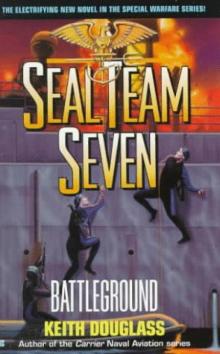 Seal Team Seven 6 - Battleground
Seal Team Seven 6 - Battleground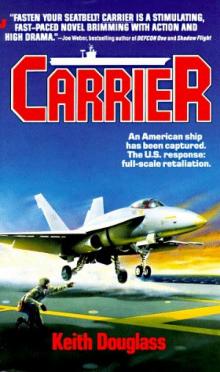 Carrier c-1
Carrier c-1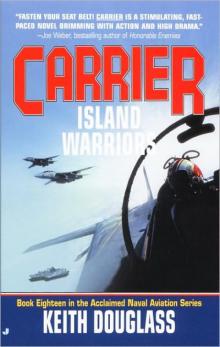 Island Warriors c-18
Island Warriors c-18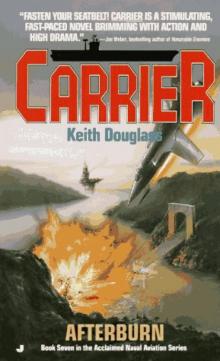 Afterburn c-7
Afterburn c-7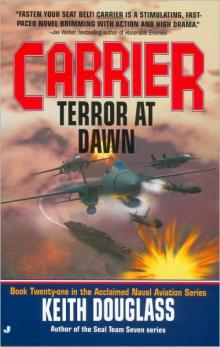 Terror At Dawn c-21
Terror At Dawn c-21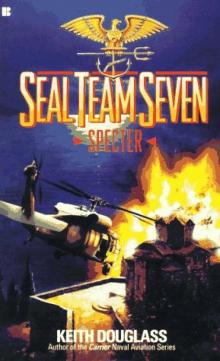 Specter sts-2
Specter sts-2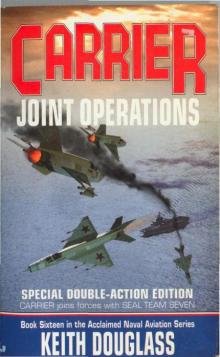 Joint Operations c-16
Joint Operations c-16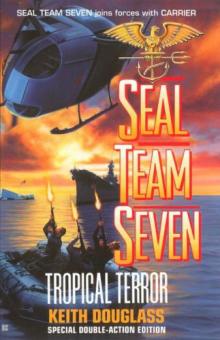 Tropical Terror sts-12
Tropical Terror sts-12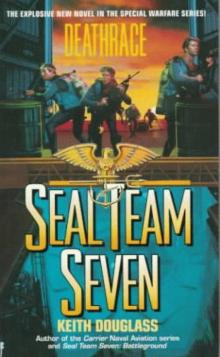 Seal Team Seven 7 - Deathrace
Seal Team Seven 7 - Deathrace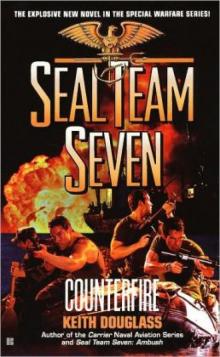 Counterfire sts-16
Counterfire sts-16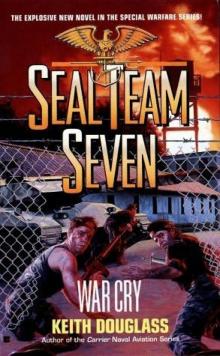 War Cry sts-9
War Cry sts-9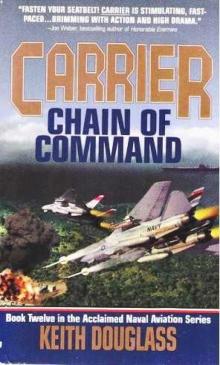 Chain of Command c-12
Chain of Command c-12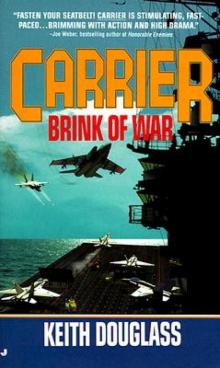 Brink of War c-13
Brink of War c-13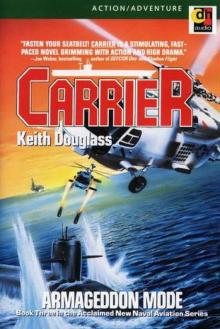 Armageddon Mode c-3
Armageddon Mode c-3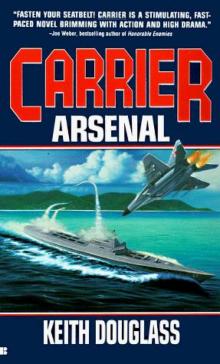 Arsenal c-10
Arsenal c-10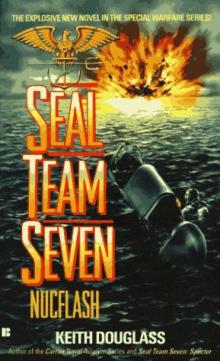 Nucflash sts-3
Nucflash sts-3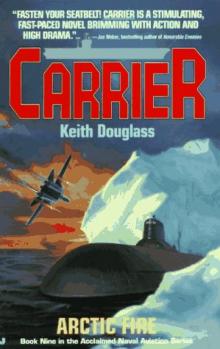 Arctic Fire c-9
Arctic Fire c-9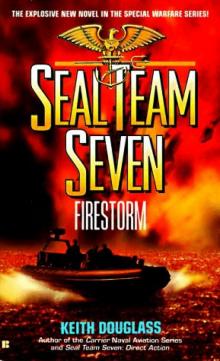 Firestorm sts-5
Firestorm sts-5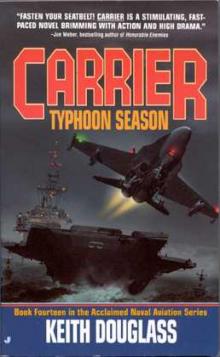 Typhoon Season c-14
Typhoon Season c-14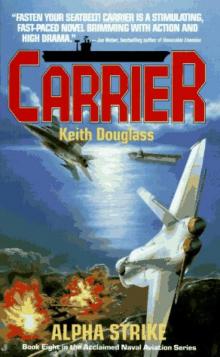 Alpha Strike c-8
Alpha Strike c-8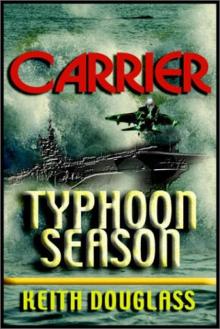 Carrier 14 - TYPHOON SEASON
Carrier 14 - TYPHOON SEASON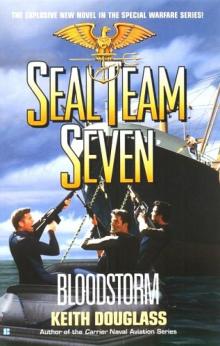 Bloodstorm sts-13
Bloodstorm sts-13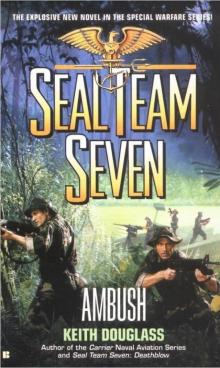 Ambush sts-15
Ambush sts-15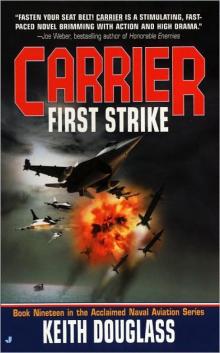 First Strike c-19
First Strike c-19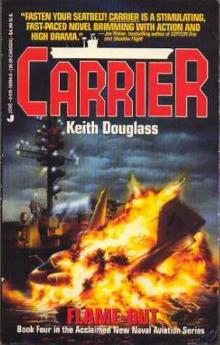 Flame Out c-4
Flame Out c-4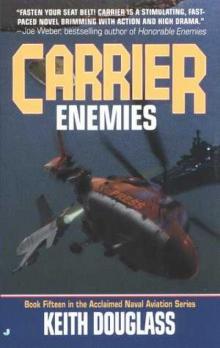 Enemies c-15
Enemies c-15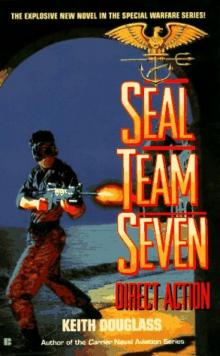 Seal Team Seven 04 - Direct Action
Seal Team Seven 04 - Direct Action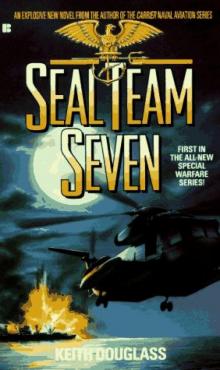 Seal Team Seven 01 - Seal Team Seven
Seal Team Seven 01 - Seal Team Seven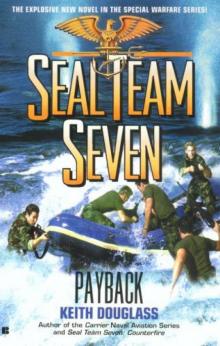 Payback sts-17
Payback sts-17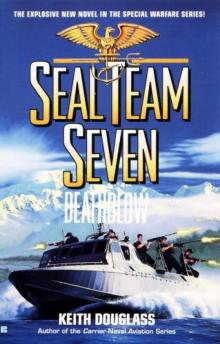 Death Blow sts-14
Death Blow sts-14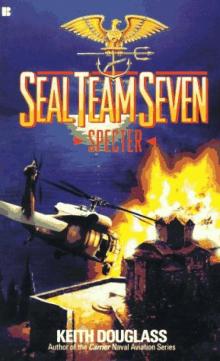 Seal Team Seven 02 - Spector
Seal Team Seven 02 - Spector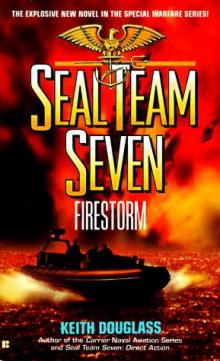 Seal Team Seven 5 - Firestorm
Seal Team Seven 5 - Firestorm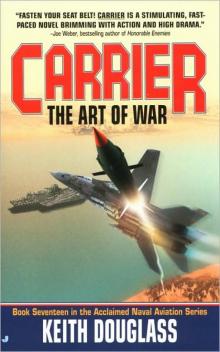 The Art of War c-17
The Art of War c-17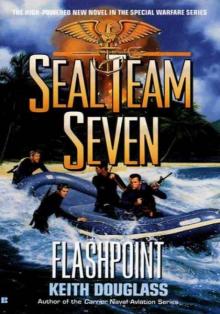 Flashpoint sts-11
Flashpoint sts-11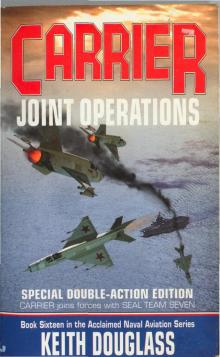 Carrier - Joint Operation Book 16
Carrier - Joint Operation Book 16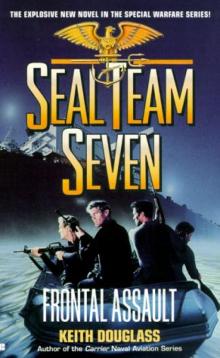 Frontal Assault sts-10
Frontal Assault sts-10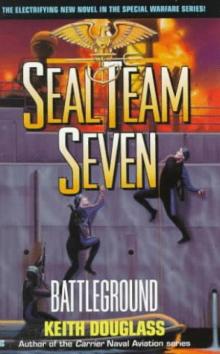 Battleground sts-6
Battleground sts-6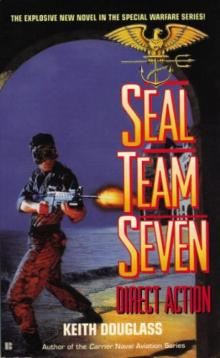 Direct Action sts-4
Direct Action sts-4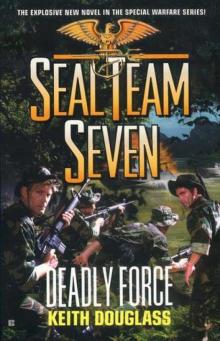 Deadly Force sts-18
Deadly Force sts-18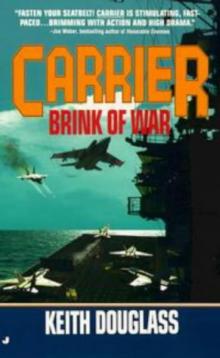 Carrier 13 - Brink of War
Carrier 13 - Brink of War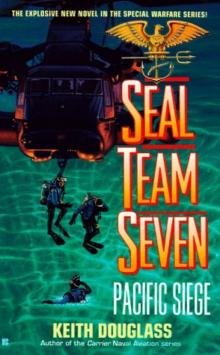 Pacific Siege sts-8
Pacific Siege sts-8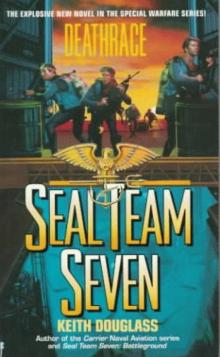 Deathrace sts-7
Deathrace sts-7